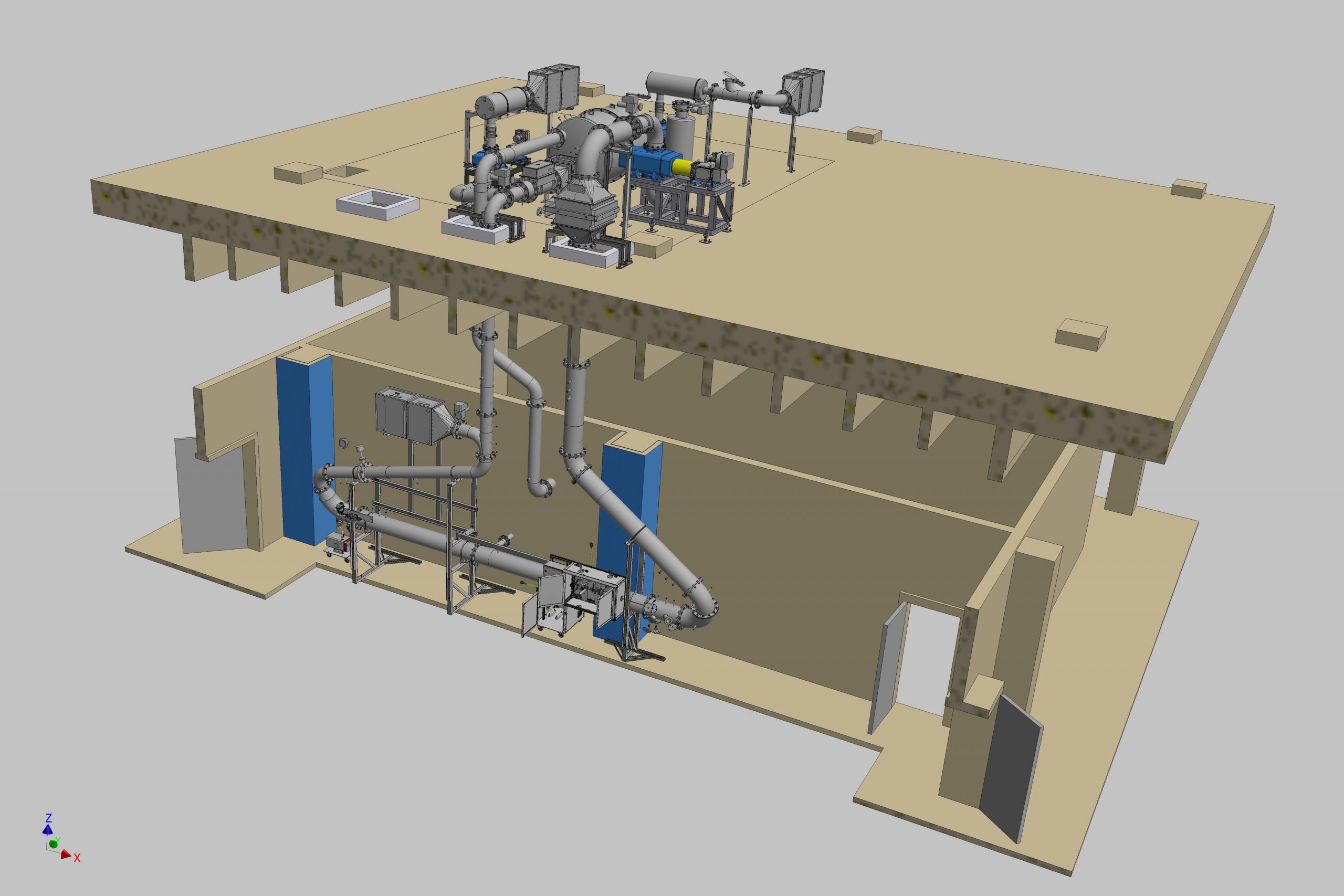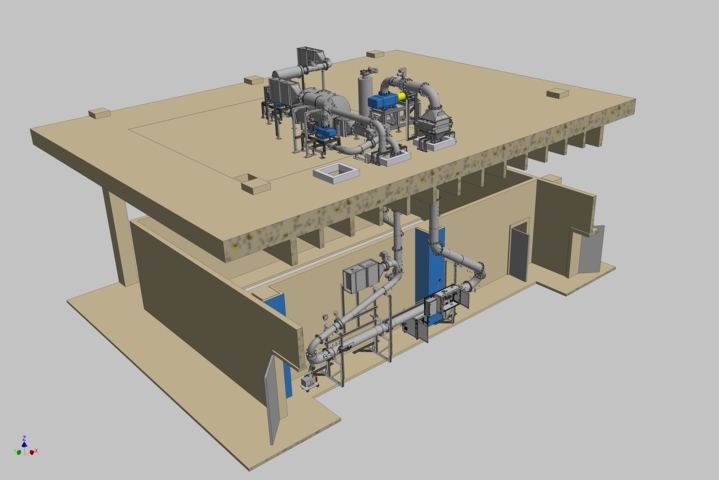ACVS – Altimetric Constant Volume Sampler
Constant volume sampling system (altimetric version)
The Altimetric Constant Volume Sampler (ACVS) is a unique product resulting from the combination of the Constant Volume Sampler (CVS) and the Altitude Simulation System (EACS), both manufactured by Control Sistem. The result is a product for diluting and sampling the exhaust gases generated by an internal combustion engine, which makes it possible to carry out both emission and type-approval tests in the standard form required by American and European standards, and to perform the same tests, or any other type of test, by customising the altitude conditions.
Similarly to the elevation altimetric simulation system (EACS), it is possible to carry out automotive testing on internal combustion engines, both diesel and petrol engines, by simulating altitude conditions above sea level that differ from the actual conditions at the site where the test is actually carried out. It thus allows the behaviour of the engine to be tested and the composition of the combustion gases to be analysed at different altitude conditions ranging from 800 metres below sea level to 5,000 metres above sea level.
The two units composing the system (the altimetric one and the CVS one) are directly connected to each other. The desired pressure level is produced within a volume of adequate capacity, thanks to a pump system, able to obtain stable pressure conditions during the engine transients. The volume is directly connected to the intake duct of the engine under test, while the engine exhaust is connected to the dilution air pipe of the CVS component, just before the dilution tunnel. The dilution air pipe is connected with the volume of the altimetric component; in this way the engine under test receives fresh air at controlled pressure and pushes the exhaust gases inside the dilution tunnel at the same pressure conditions.
The suction device for diluted exhaust gases is a volumetric pump, useful for maintaining a homogeneous and constant flow rate. This strategy allows to adapt the flow rate according to the engine under test, thus allowing to optimize the dilution factor, in order to better control the temperature and concentration of pollutants.
ACVS is equipped with an air treatment unit and several heat exchangers, so that the temperature and humidity of the gases are controlled in all the points of the system, in accordance with the reference standards.
The system is equipped with a heated cabinet which can hold up to 4 bags for dilution air sampling and up to 8 bags for diluted gas sampling (4 bags for spark ignition engines and 4 bags for diesel engines). In order to avoid contamination of the gases, ACVS is able to automatically carry out a bag cleaning procedure before sampling. At the end of the test both the diluted gas and the dilution air can be sent to the gas analysers.
ACVS is also equipped with a gravimetric particulate sampling system very similar to the PSS-20, but tailor-made to be integrated into the ACVS.
Thanks to a solenoid valve system it is possible to use the system both in altimetric mode and in the classic CVS one.
The final configuration of the system is designed on the specific needs of the customer, not only relating to the engines to be tested, but also according to the spaces available for positioning the various components.
All ACVS operations are managed by means of an easy and intuitive software, created in the INT9000 development environment. ACVS application also allows you to save all the relevant system data (temperatures, pressures, flow rates, volumes, etc.) on simple ASCII files. The system can be completely remotely controlled, using the AK protocol through a RS232 or TCP/IP connection.
Advantages
- User-friendly software
- Variable dilution factor
- It can be used with a wide range of engines (light duty, heavy duty, diesel, spark ignition)
- Compliant with the main European and American regulations
- Possibility to perform dynamic tests
- Possibility to simulate both higher and lower altitudes
- Very low electric consumption, thanks to the use of regenerative inverters
Application fields
- Emission tests
- Homologation
- Consumption and endurance tests
- Research and development
Standard references
ISO 8178
Directive 2008/74/EC
Directive 2005/78/EC
Directive 2005/55/EC
Directive 2004/26/EC
EPA 40 CFR 1065
EPA 40 CFR 1066
EPA 40 CFR 86
UN/ECE no.83
UE 2017/1151
- Maximum flow rate for light-duty 20 m3/min
- Maximum flow rate towards the engine 1.200 kg/h
- Minimum pressure – 500 mbar (about 5000 m over the sea level)
- Maximum pressure +100 mbar (about 800 m over the sea level)
- Pressure stability (stationary conditions) ± 1 mbar
- Pressure stability (dynamic conditions) ± 4 mbar
- Temperature range from -30 °C to 60 °C
- Relative humidity range da 5% a 95%
- Temperature stability ± 1 °C
- Relative humidity stability ± 3%
- Air dilution filter active carbon + HEPA (H13 class)
- Air dilution sampling bags from 1 to 4
- Diluted gas sampling bags from 2 to 8 (diesel/spark ignition engines)
- Mixing (minimum Raynolds number) 4.000
- Particulate sampling system 1, 2 or 3 filter holders
- Remote control RS232 or TCP/IP with AK protocol



